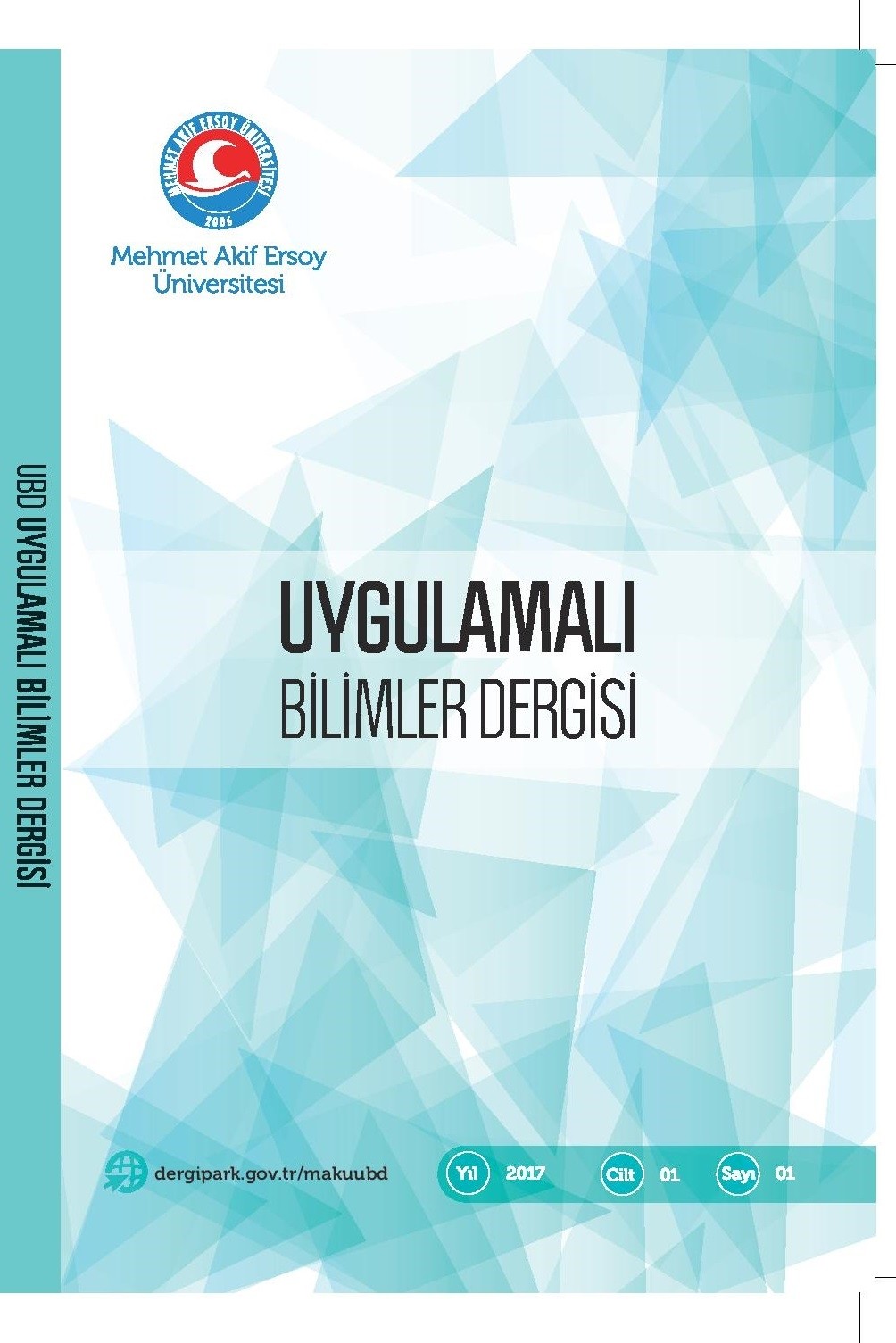Kurs Oranı Ve Artık Gaz Kesrinin Otto Çevrimli Bir Motorun Performansına Etkisi
Sonlu zaman termodinamiği, kurs oranı, artık gaz kesri, Otto çevrimi
___
- Caton, J. A. (2012). The thermodynamic characteristics of high efficiency, internal-combustion engines. Energy Conversion and Management, 58, 84-93, DOI: 10.1016/j.enconman.2012.01.005.
- Ebrahimi, R. (2011). Effects of mean piston speed, equivalence ratio and cylinder wall temperature on performance of an Atkinson engine. Mathematical and Computer Modelling, 53(5-6), 1289-1297, DOI: 10.1016/j.mcm.2010.12.015.
- Ebrahimi, R. (2011). Thermodynamic modeling of performance of a Miller cycle with engine speed and variable specific heat ratio of working fluid. Computers & Mathematics with Applications, 62(5), 2169-2176, DOI: 10.1016/j.camwa.2011.07.002.
- Ebrahimi, R. (2012). Performance analysis of an irreversible Miller cycle with considerations of relative air–fuel ratio and stroke length. Applied Mathematical Modelling, 36(9), 4073-4079, DOI: 10.1016/j.apm.2011.11.031.
- Ebrahimi, R. (2013). Thermodynamic Modeling of an Atkinson Cycle with respect to Relative Air-Fuel Ratio, Fuel Mass Flow Rate and Residual Gases. Acta Physica Polonica, A., 124(1), DOI: 10.12693/APhysPolA.124.29.
- Ebrahimi, R. (2014). Thermodynamic simulation of performance of an irreversible Otto cycle with engine speed and variable specific heat ratio of working fluid. Arabian Journal for Science and Engineering, 39(3), 2091-2096, DOI: 10.1007/s13369-013-0769-9.
- Ebrahimi, R., & Sherafati, M. (2013). Thermodynamic simulation of performance of a dual cycle with stroke length and volumetric efficiency. Journal of thermal analysis and calorimetry, 111(1), 951-957, DOI: 10.1007/s10973-012-2424-1.
- Ge, Y., Chen, L., & Qin, X. (2018). Effect of specific heat variations on irreversible Otto cycle performance. International Journal of Heat and Mass Transfer, 122, 403-409, DOI: 10.1016/j.ijheatmasstransfer.2018.01.132.
- Ge, Y., Chen, L., & Sun, F. (2008). Finite-time thermodynamic modelling and analysis of an irreversible Otto-cycle. Applied Energy, 85(7), 618-624, DOI: 10.1016/j.apenergy.2007.09.008.
- Ge, Y., Chen, L., & Sun, F. (2009). Finite-time thermodynamic modeling and analysis for an irreversible Dual cycle. Mathematical and Computer Modelling, 50(1-2), 101-108, DOI: 10.1016/j.mcm.2009.04.009.
- Gonca, G., & Sahin, B. (2016). The influences of the engine design and operating parameters on the performance of a turbocharged and steam injected diesel engine running with the Miller cycle. Applied Mathematical Modelling, 40(5-6), 3764-3782, DOI: 10.1016/j.apm.2015.10.044.
- Gonca, G., Sahin, B., & Ust, Y. (2013). Performance maps for an air-standard irreversible Dual–Miller cycle (DMC) with late inlet valve closing (LIVC) version. Energy, 54, 285-290, DOI: 10.1016/j.energy.2013.02.004.
- Gonca, G., Sahin, B., Ust, Y., & Parlak, A. (2015). Comprehensive performance analyses and optimization of the irreversible thermodynamic cycle engines (TCE) under maximum power (MP) and maximum power density (MPD) conditions. Applied Thermal Engineering, 85, 9-20, DOI: 10.1016/j.applthermaleng.2017.07.203.
- Wu, Z., Chen, L., Ge, Y., & Sun, F. (2018). Thermodynamic optimization for an air-standard irreversible Dual-Miller cycle with linearly variable specific heat ratio of working fluid. International Journal of Heat and Mass Transfer, 124, 46-57, DOI: doi.org/10.1016/j.ijheatmasstransfer.2018.03.049.
- Yayın Aralığı: Yılda 2 Sayı
- Başlangıç: 2017
- Yayıncı: Burdur Mehmet Akif Ersoy Üniversitesi
Kamu Üniversitelerinde İç Kontrol ve Kalite Uygulamaları: Mehmet Akif Ersoy Üniversitesi Örneği
Akışkan Şarj Oranının Düşük Sıcaklıklarda Yerçekimi Destekli Isı Borusu Performansına Etkisi
Ragıp YILDIRIM, Abdullah YILDIZ, Ahmet ÖZSOY
İhracatın Finansmanında Şer’i Kurallara Uygun Alternatif Yaklaşım; Türkiye Örneği
Dr.öğr.ü.serdar KUZU, Dr.hakan BEROĞLU, Dr.temur KAYHAN, Dr.halil ARSLAN
GERONTOLOJİ LİSANS EĞİTİMİNDE VERİ ARAŞTIRMALARI YOLUYLA İSTATİSTİK ÖĞRETİMİ
Konuşmacı Cinsiyetinin Tespitinde Değişik Normalizasyon Tekniklerinin Kıyaslanması
Serhat İLERİ, Armağan KARABİNA, Erdal KILIÇ
Kurs Oranı Ve Artık Gaz Kesrinin Otto Çevrimli Bir Motorun Performansına Etkisi
LOJİSTİKTE TAŞIMA ŞEKİLLERİNİN BELİRLENMESİ: BİR KOMBİNE TAŞIMACILIK ÖRNEĞİ
